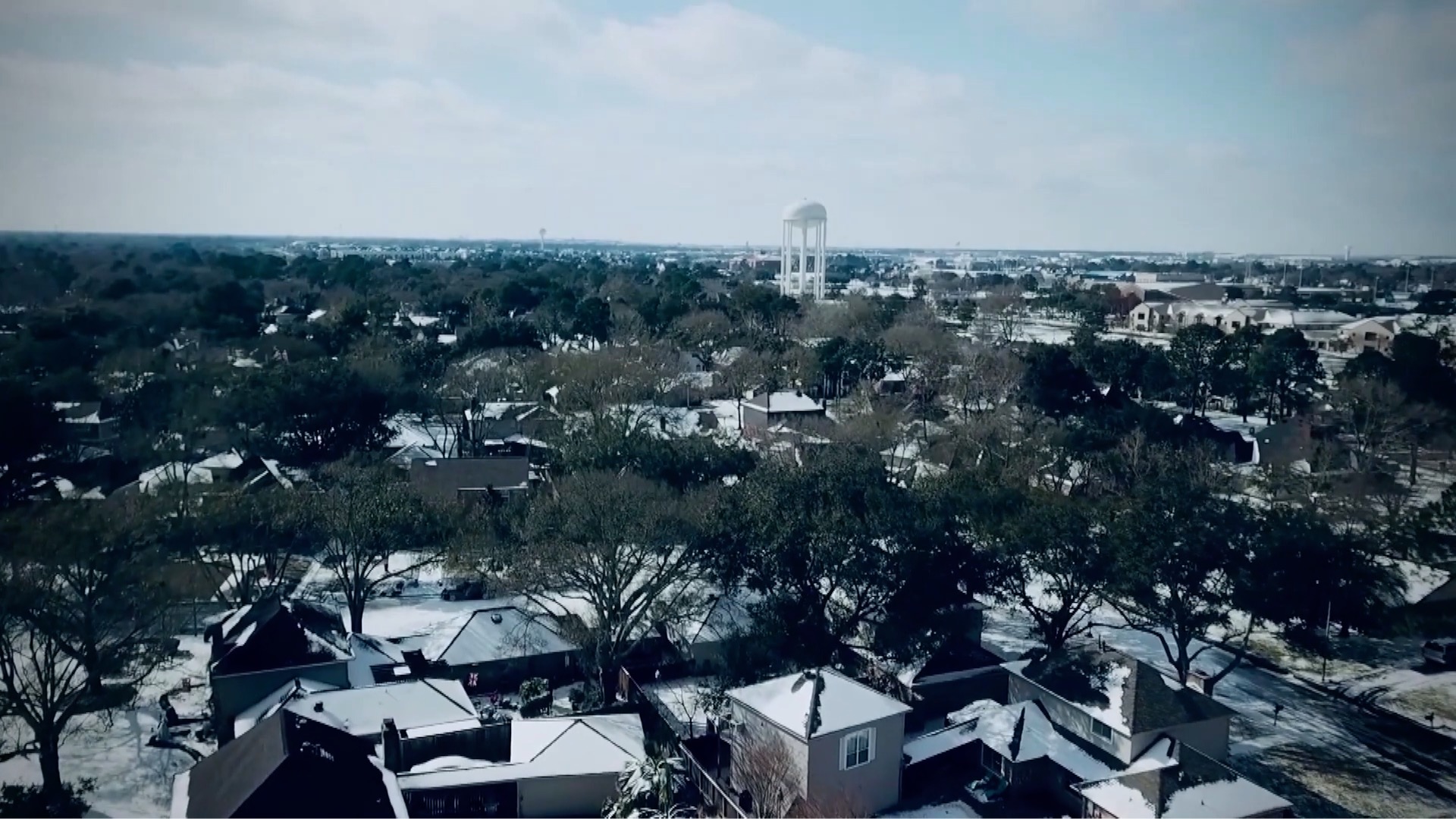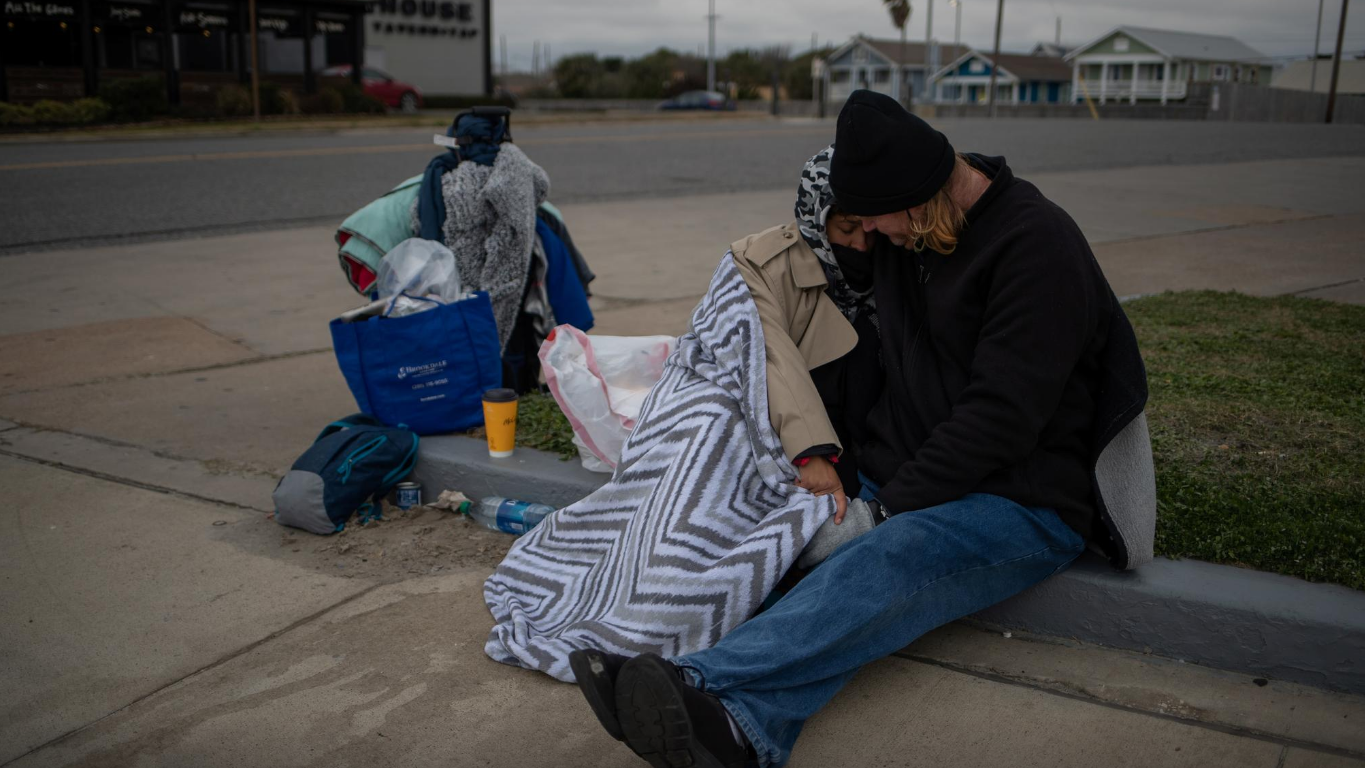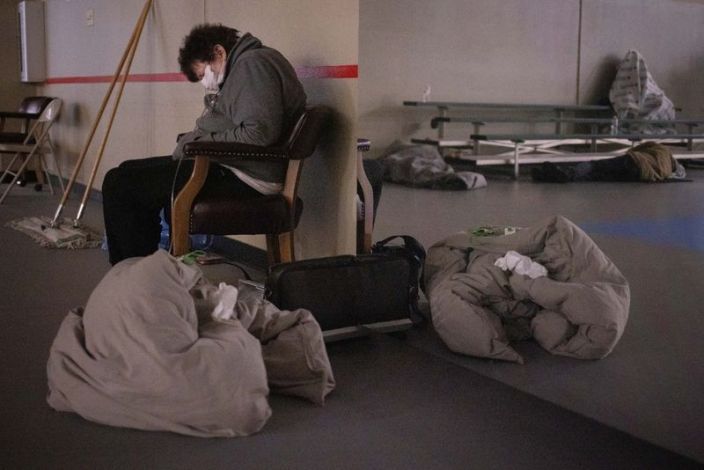00:59

Texas's freeze entered a sixth day on Thursday, as the biggest energy-producing state in the United States grappled with massive refining outages and an oil and gas shutdown that rippled beyond its borders into neighboring Mexico.
The cold snap, which has killed at least 21 people and knocked out power to more than 4 million people in Texas, is not expected to let up until this weekend. The deep freeze has shut about one-fifth of the nation's refining capacity and closed oil and natural gas production across the state.
The outages in the state also affected power generation in Mexico, with exports of natural gas via pipeline dropping off by about 75 percent over the last week, according to preliminary Refinitiv Eikon data.
Texas Governor Greg Abbott directed the state's natural gas providers not to ship outside Texas, but state regulators said it is unlikely that they have the right to interfere with existing contracts to buyers.
"I'm not sure we have authority to mess with that, nor do I really want to," said Jim Wright, one of three members of the Texas Railroad Commission, the state's oil and gas regulator.
The ban prompted a response from officials in Mexico, as U.S. gas pipeline exports to Mexico fell to 4.3 billion cubic feet per day on Wednesday, down from an average over the past 30 days of 5.7 billion, according to data from Refinitiv.
The Mexican government called the top U.S. representative in Mexico on Wednesday to press for natural gas supplies as power cuts there have hit millions of residents. The White House said Thursday it was in discussions with Mexican authorities and Texas officials over Abbott's directive.

Couple sit amongst belongings as they embrace to keep warm after record-breaking winter temperatures in Galveston, Texas, U.S., February 18, 2021. /Reuters
Couple sit amongst belongings as they embrace to keep warm after record-breaking winter temperatures in Galveston, Texas, U.S., February 18, 2021. /Reuters
More blackouts in store
Texas exports gas via pipeline to Mexico and via ships carrying liquefied natural gas (LNG) from terminals in Freeport and Corpus Christi. It also supplies numerous regions of the country, including the U.S. Midwest and Northeast.
The state's electrical grid operator, Electric Reliability Council of Texas (ERCOT), was trying to restore power as thermal generators – those powered by natural gas, coal and other fuels – lost the capability to provide power as valves and pipes froze.
ERCOT said that while there is no additional load shedding at this time, a little over 40,000 megawatts (MW) of generation remained offline, including 23,500 MW of thermal and the rest wind and solar.
"Energy emergency conditions remain as the grid operator and transmission owners work to restore the remaining customers that are without power," it said.
Blackouts could continue through at least Friday, said Rebecca Miller, senior analyst at Wood Mackenzie.
While the storm is moving out of Texas, freezing temperatures remain and refining operations, in particular, might take days, if not weeks, to resume.
"The oil and gas industry is finally getting some power into these fields. The Delaware Basin is getting back online and gas is starting to move out of it," Christi Craddick, Texas railroad commissioner, said on Wednesday night during an emergency meeting.
Industrial facilities and manufacturing plants are unable to operate without power. Auto companies, including Ford Motor Co., have shut some plants because they do not have natural gas power.

Local resident take refuge in a shelter after record-breaking temperatures in Galveston, Texas, U.S., February 18, 2021. /Reuters
Local resident take refuge in a shelter after record-breaking temperatures in Galveston, Texas, U.S., February 18, 2021. /Reuters
As many in Texas experience power outages, the state is now also running out of food with the disruption of supply chains, local media has reported.
The Texas Tribune published on Wednesday said that across the state, people are using up supplies they had stockpiled and losing more as items start to spoil in dark refrigerators.
With grocery stores across the state shuttered for power outages, supermarkets that remain open have seen supplies dwindle. Across the state, school districts have halted meal distributions to students for the next several days.
The U.S. Department of Health and Human Services (HHS) on Wednesday declared a public health emergency for Texas, due to the heavy storms.
NBC reported on Thursday that Abbott said 325,000 people remained without power due to the heavy storm and warned "temperatures will again drop overnight."
Texas is the nation's biggest fossil fuel energy producer, but its operators, unlike those in North Dakota or Alaska, are not used to frigid temperatures.
Texas produces almost a quarter of U.S. natural gas production and consumes about 15 percent. Most of the gas it ships domestically goes to neighboring Oklahoma and Louisiana.
(With input from Xinhua, Reuters)

